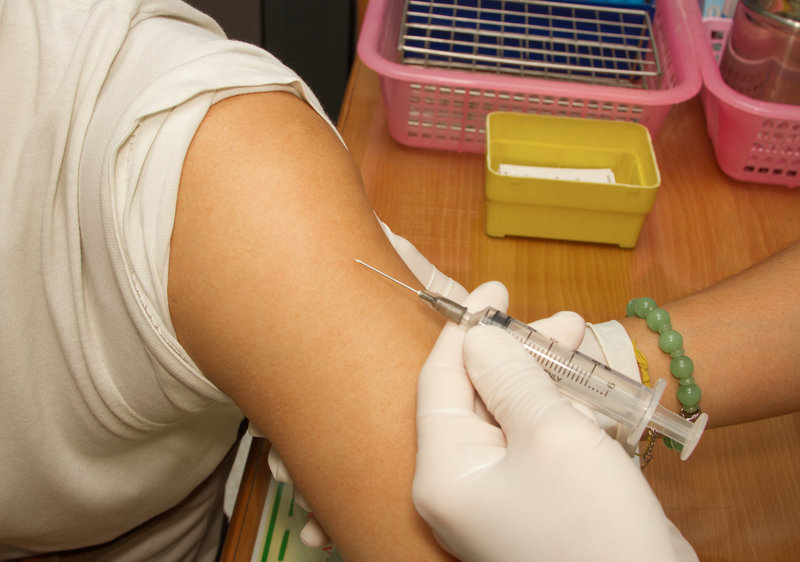The development of vaccines against childhood illnesses is one of the great achievements of modern medicine. Diseases that cause birth defects, make children seriously ill or even kill them — rubella, whooping cough, polio — now can be reliably prevented.
Unfortunately for Maine’s children, child vaccination rates declined steadily in recent years, following a national trend. In 2009, the percentage of Maine kids receiving one core group of vaccines was 38 percent. Now our immunization rate has gone from among the nation’s worst to close to the top, thanks to a concerted effort to make vaccination less costly. Though the campaign still faces challenges, Maine has made notable strides toward reversing a frightening trend.
Childhood immunization programs enjoyed great success in the second half of the 20th century, slashing vaccine-preventable diseases by 95 percent. Scientist Jonas Salk, the inventor of the polio vaccine, became a national hero when the vaccine was licensed in 1955.
But as the number of vaccines grew, so did parental concerns about them, including cost, access and safety. And as more parents delayed immunizations or refused them altogether, the incidence of preventable diseases rose. In Maine, whooping cough soared from 205 cases in 2011 to more than 700 in 2012 (mostly among Mainers ages 7 to 19) — a comeback largely attributable to inadequate immunizations.
A coalition of doctors, public health groups and children’s advocates is helping reverse this alarming trend. Under the universal childhood immunization program, which launched in 2012, the Maine Vaccine Board — with funding from insurers — buys all vaccines at a reduced rate and distributes them for free to doctors, clinics and hospitals. Children are immunized at no charge.
Vaccination rates in Maine have climbed again. The percentage of children getting the core series of vaccines reached 73 percent in 2012, above the national average. Maine’s vaccination ranking has risen from 37th in the nation in 2009 to 10th in 2012. And as of Sept. 6, 244 cases of whooping cough have been reported in Maine, compared to 476 for the same period last year.
Obstacles remain. Adolescent vaccine coverage in Maine still lags the national average, though it has steadily improved in recent years. Moreover, a certain percentage of parents still distrust vaccines, fearing they are linked to autism or could cause illness. Federal figures show that 4.3 percent of Maine children who started kindergarten in the fall of 2012 were excused from receiving one or more vaccines on religious or other grounds — one of the highest rates in the Northeast.
Still, the universal immunization program has made a great deal of progress. It’s a laudable example of cooperation and collaboration that ensures our children aren’t at risk for ailments most of us thought had been eradicated decades ago.
Send questions/comments to the editors.



Success. Please wait for the page to reload. If the page does not reload within 5 seconds, please refresh the page.
Enter your email and password to access comments.
Hi, to comment on stories you must . This profile is in addition to your subscription and website login.
Already have a commenting profile? .
Invalid username/password.
Please check your email to confirm and complete your registration.
Only subscribers are eligible to post comments. Please subscribe or login first for digital access. Here’s why.
Use the form below to reset your password. When you've submitted your account email, we will send an email with a reset code.